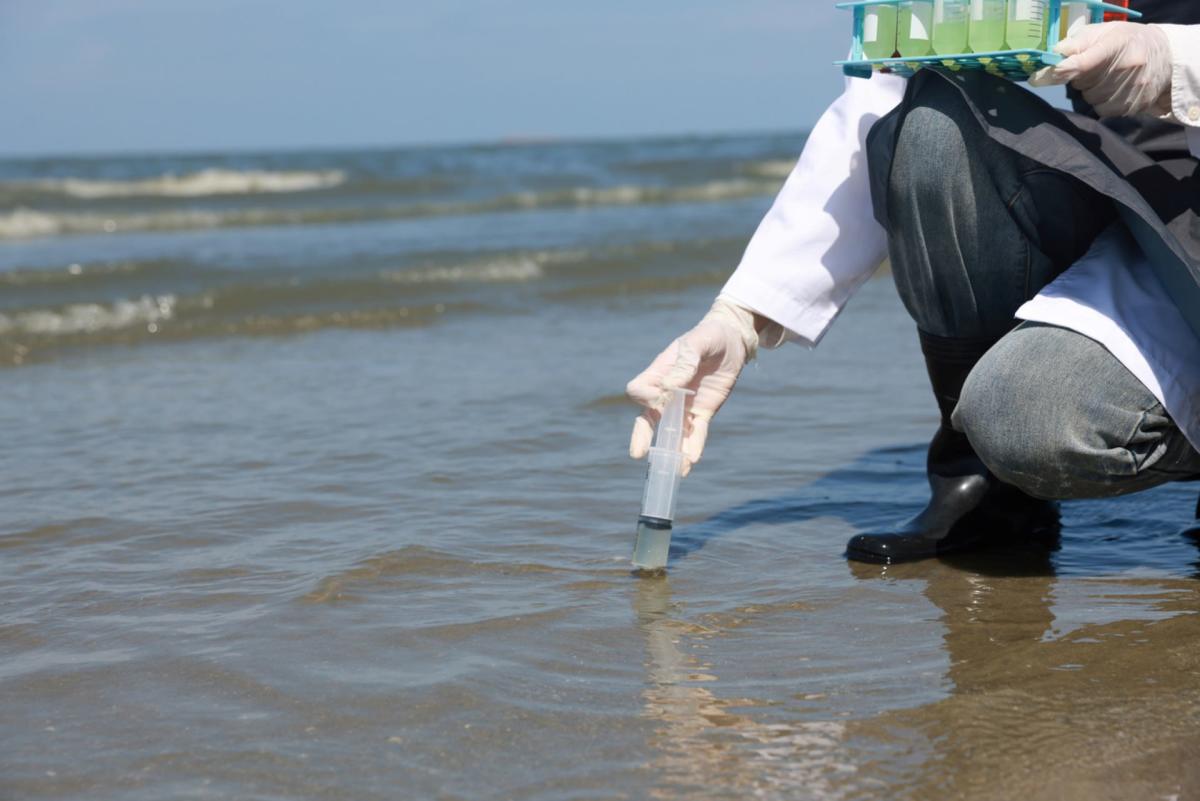
A new study out of the United Kingdom suggests everyday tasks like washing pots and shampooing your hair could seriously pollute marine environments with harmful “forever chemicals.” Called PFAS, these chemicals are known to leach into water — but the extent of their impact is just being uncovered.
What’s happening?
Scientists at the University of Portsmouth recently partnered with the Marine Conservation Society to investigate the presence of PFAS — or perfluoroalkyl and polyfluoroalkyl substances — in marine environments.
PFAS are human-made chemicals found in food packaging, nonstick cookware, water-resistant clothing, personal care items such as shampoo, and more. They are often called “forever chemicals” because they “usually take hundreds or thousands of years to break down,” the World Economic Forum reports.
Per a University of Portsmouth article on Phys.org, scientists collected seawater samples before and after sewage discharges from a U.K. wastewater treatment plant servicing more than 400,000 people. The researchers found PFAS concentrations increased significantly after sewage discharges. Before sewage discharge, one detectable PFAS compound was found in tested waterways. Afterward, eight different PFAS compounds were detected — including two banned PFAS.
The research, recently published in Chemosphere, also found that seaweed in the studied area contained more than 6,000 times the concentration of PFAS than the water surrounding it. Researchers say this data indicates that seaweed stores the forever chemical in high concentrations — and this stored PFAS could work its way up the food chain when ingested by algae-grazing marine animals.
Why is the presence of PFAS in waterways concerning?
Numerous studies have previously linked PFAS exposure to human health impacts like cancer, decreased fertility, and increased risks of asthma and thyroid disease, CNN reported.
Watch now: Can the government create hurricanes?
PFAS also impact marine animals, with studies finding the “forever chemicals” in the livers of otters, gulls’ eggs, freshwater fish, and more, per Scientific American. According to Seaside Sustainability, PFAS can sicken marine animals, causing immune system shutdowns and liver damage. Fish and other marine animals can also expose people to PFAS when entering the human food chain.
People become exposed to PFAS by consuming contaminated food and water, using products made with PFAS, and breathing in air that contains PFAS. One Centers for Disease Control and Prevention survey found PFAS in the blood of 97% of Americans.
What’s being done about PFAS?
In a statement, the study’s authors say further research is needed to understand the effects of PFAS on marine life. They also called for strategy development to reduce existing PFAS in the environment.
How often do you worry about toxic chemicals getting into your home?
Always
Often
Sometimes
Never
Click your choice to see results and speak your mind
Most importantly, the researchers stress the need to develop and implement less polluting replacements for PFAS in products.
“These findings underscore the need for an urgent ban on PFAS from all uses where there are alternatives,” study co-author Francesca Ginley, chemicals policy and advocacy manager at the Marine Conservation Society, said in a statement. “These chemicals will impact us and the environment for generations to come.”
Researchers globally are also working to understand more about PFAS, with the Environmental Protection Agency reporting that its researchers are especially interested in how to better detect and measure PFAS, how to remove PFAS from water, how to dispose of PFAS, and more.
To educate yourself on PFAS exposure, review this list of products and uses for PFAS.
Join our free newsletter for good news and useful tips, and don’t miss this cool list of easy ways to help yourself while helping the planet.
EMEA Tribune is not involved in this news article, it is taken from our partners and or from the News Agencies. Copyright and Credit go to the News Agencies, email news@emeatribune.com Follow our WhatsApp verified Channel



